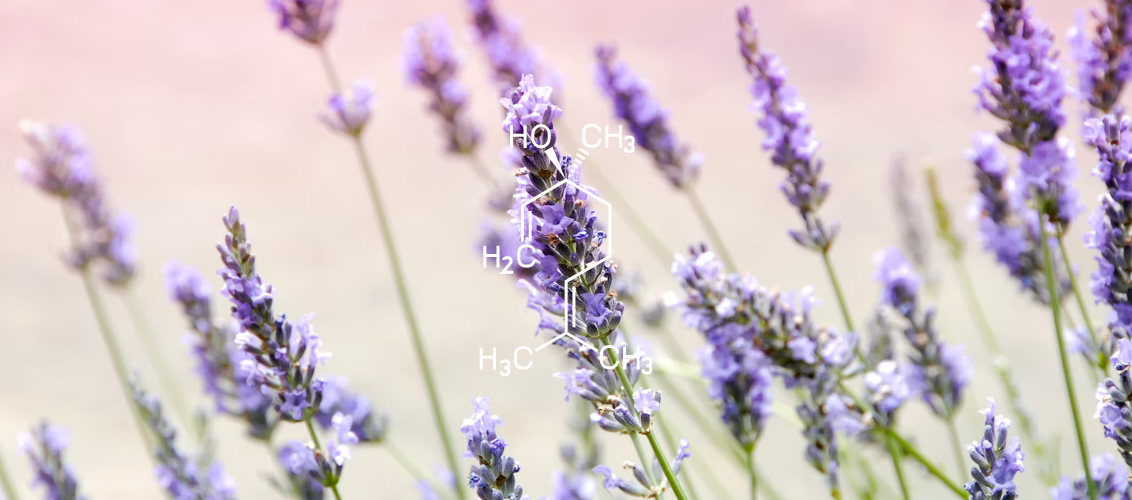
Benefits of Lavender
What is Lavender?
Lavender (lavandula) is a flowering plant that has about 39 to 47 known species. Lavender belongs to the mint family called Lamiaceae. Lavender has its origin in Cape Verde, the Canary Islands, and the Mediterranean and from Europe across eastern and northern Africa to India. Many species of lavender are cultivated as ornamental plants for use as culinary herbs, landscape, and garden use. Lavandula angustifolia is the most cultivated species. Lavender has been used for thousands of years to treat several health disorders.
Uses of Lavender
1. Lavender can be used as a flavoring agent in preparing food.
2. Lavender is used in healthcare industries to produce pharmaceutical products.
3. Lavender can be used as an ingredient in manufacturing perfumes, soaps, and cosmetics products.
4. Lavender is used in aromatherapy.
5. Lavender can be processed into tea and consumed to cure some ailments in the body.
6. Lavender is also used as a flavoring agent in the manufacturing of beverages.
Traditional uses of Lavender
Traditionally, lavender is employed in the treatment of sleeping disorders. Lavender preparation is also used for its diuretic, carminative, spasmolytic and stomachic effects. Additionally, lavender oil and flowers are used to treat headache, insect bites, candida, asthma, laryngitis, sinusitis and ease muscular pain
Surprising facts about Lavender
The scientific name of lavender is lavandula from the Latin word 'lanvare,' which means 'to wash.'
In ancient Egypt, lavender was employed in their mummification process.
Lavandula angustifolia is the most cultivated species of lavender.
Lavender has about 39 to 47 different species and 400 varieties all over the world.
Lavender is blue, pink, purple, green, and white.
Lavender belongs to the mint family known as Lamiaceae.
Lavender contains essential oil, which is used for its numerous benefits.
Lavender can mean happiness, luck, distrust, or devotion in the language of flowers.
The fragrance produced by lavender can serve as a bug repellent.
Health benefits of Lavender and why myAir bars contain it
1. Lavender can be used in aromatherapy
Lavender is commonly used in aromatherapy. The fragrance of lavender oil extract can help promote wellness and calmness. It can also help to lower anxiety, mild pain, and stress.
A study in the Journal of Alternative and Complementary Medicine found that using lavender, rose, and sage could help reduce menstrual cramps symptoms in women.
Lavender can be used to promote wellness and calmness
2. Lavender can help to treat skin and hair diseases
Lavender oil can be used topically to treat a condition known as alopecia aerate, responsible for hair fallout.
In a study published in the Archives of Dermatology, people rubbed essential oils of thyme, rosemary, lavender, and cedarwood on areas where they had hair fallout. Some of the people experienced hair regrowth within seven months. When lavender oil is applied to the skin, it can help to treat eczema, diaper rash, sunburns, and acne. Chamomile-lavender body cream is also a home remedy that helps to soothe irritated skin from diaper rash and sunburns.
Lavender oil has also been shown to possess anti-inflammatory and antibacterial properties, which can fight against skin conditions such as acne and psoriasis.
A study of rats showed that applying lavender oil topically daily for 14 days led to a decrease in wounds compared with the control group. This is as a result of lavender oil promotion of the synthesis of the structural protein collagen.
This report, however, suggests that some forms of lavender may boost collagen formation and fast skin healing.
Lavender oil can treat skin and hair-related diseases because of the antibacterial and anti-inflammatory properties it possesses.
3. Lavender can aid sleep
Lavender has been recommended for a long time for people with sleep disorders. People have stuffed lavender flowers into their pillows to fall asleep and get a better night's rest. These days, aromatherapists also use lavender to treat headaches, restlessness, and nervousness. Massage therapists sometimes apply lavender oil to the skin, which can act as a calming agent and a sleep aid. In Germany, lavender tea has also been approved as a supplement to treat stomach irritation, sleep disruptions, and restlessness.
One study in 158 new mothers in the postpartum period found that women who took 10 deep breaths of lavender fragrance 4 days a week for 8 weeks had significantly better sleep quality than those in the placebo group (3Trusted Source).
A study of 79 college students who had sleep issues showed that breathing in lavender and maintaining proper sleeping hygiene can improve sleep quality. Based on the results obtained, drinking a cup of lavender tea before sleeping can help to enhance better sleep. However, these properties can be most enjoyed if the lavender scent is inhaled.
Reports of research suggest that lavender fragrance can exact calmness on the body, thereby enhancing a better sleep.
4. Lavender can help to enhance mood disorders
Lavender is widely used in aromatherapy to deal with anxiety, depression, and tiredness. Some studies suggest that the compounds present in lavender can help stimulate the brain, thereby influencing the transmission of impulses between brain cells, providing a calming effect and mood boost.
Lavender extract scent and its preparation can help to calm the mind and enhance mood. A study of 80 mothers in Taiwan showed that those who took 1 cup of lavender tea daily for 2 weeks experienced less depression and fatigue than those who didn't drink and smell the tea. However, some similar reports of fatigue and depression between the two groups after 4 weeks suggest that the benefits are more useful early on.
Lavender scent and oil preparations can help to calm nerves in the body and lower depression and anxiety.
5. Lavender can help to relieve discomfort associated with menstruation
Among women, cramping before or during menstruation is very common. However, lavender can help to reduce such pain.
The report of a study of 200 young adult women in Iran showed that inhaling lavender oil for 30 minutes daily in the first 3 days of their menstrual cycle experienced significantly less painful cramping after 2 months compared to those in the control group. Other researches also suggest that massaging lavender oil into the skin too can help with menstrual cramping; drinking lavender tea and inhaling its essential oil can be beneficial to health.
Inhaling lavender essential oil and massaging it into the skin can help to deal with menstrual cramping.
Conclusion
Lavender oil extract and preparations are helpful for a wide range of health conditions. Lavender can also be consumed as tea to provide a soothing effect on the body. Good news - myAir bars are packed with lavender!
Footnotes
Effect of aromatherapy on symptoms of dysmenorrhea in college students: A randomized placebo-controlled clinical trial
Sun-Hee Han et al. J Altern Complement Med. Jul-Aug 2006.
https://pubmed.ncbi.nlm.nih.gov/16884344/
Randomized trial of aromatherapy. Successful treatment for alopecia areata
I C Hay et al. Arch Dermatol. 1998 Nov.
https://pubmed.ncbi.nlm.nih.gov/9828867/
https://www.ncbi.nlm.nih.gov/pmc/articles/PMC3612440/
Effects of Lavender Tea on Fatigue, Depression, and Maternal-Infant Attachment in Sleep-Disturbed Postnatal Women
Shu-Lan Chen et al. Worldviews Evid Based Nurs. 2015 Dec.
https://pubmed.ncbi.nlm.nih.gov/26523950/
Lavender Fragrance Essential Oil and the Quality of Sleep in Postpartum Women
Mahnaz Keshavarz Afshar, Zahra Behboodi Moghadam, [...], and Pouran Mokhtari
https://www.ncbi.nlm.nih.gov/pmc/articles/PMC4443384/
Effect of Inhaled Lavender and Sleep Hygiene on Self-Reported Sleep Issues: A Randomized Controlled Trial
Angela Smith Lillehei, PhD, Linda L. Halcón, PhD, MPH, RN, [...], and Reilly Reis, MS
https://www.ncbi.nlm.nih.gov/pmc/articles/PMC4505755/
The Effect of Lavender Aromatherapy on the Pain Severity of Primary Dysmenorrhea: A Triple-blind Randomized Clinical Trial
R Nikjou, R Kazemzadeh, [...], and H Salehi
https://www.ncbi.nlm.nih.gov/pmc/articles/PMC5405632/
The effect of aromatherapy massage with lavender oil on severity of primary dysmenorrhea in Arsanjan students
Froozan Bakhtshirin, Sara Abedi, [...], and Damoon Razmjooee
https://www.ncbi.nlm.nih.gov/pmc/articles/PMC4325408/
Antioxidant, analgesic, and anti-inflammatory effects of lavender essential oil
Gabriela L da Silva et al. An Acad Bras Cienc. 2015 Aug.
https://pubmed.ncbi.nlm.nih.gov/26247152/
Effect of Lavender (Lavandula angustifolia) Essential Oil on Acute Inflammatory Response
Gabriel Fernando Esteves Cardia, Saulo Euclides Silva-Filho, [...], and Roberto Kenji Nakamura Cuman
https://www.ncbi.nlm.nih.gov/pmc/articles/PMC5878871/
Antibacterial activity of essential oil from lavender (Lavandula angustifolia) against pet turtle-borne pathogenic bacteria
Sabrina Hossain, Honghoi Heo, [...], and Gang-Joon Heo
https://www.ncbi.nlm.nih.gov/pmc/articles/PMC5645596/
Wound healing potential of lavender oil by acceleration of granulation and wound contraction through induction of TGF-β in a rat model
Hiroko-Miyuki Mori, Hiroshi Kawanami, [...], and Motokuni Aoki
